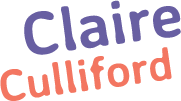There is a common misconception, it seems, that if you are an author who has had a book published, then you must be ‘doing alright’ in financial terms. This is in fact far from true for the majority of published authors, whose median earnings fell to £7,000 in 2022 (according to a report by the The Society of Authors: A profession struggling to sustain itself). This was down from £12,330 in 2006 – a drop of 33.2% based on reported figures, or 60.2% when adjusted for inflation. (It’s no wonder, therefore, that most authors still have a full-time job, or at the very least supplement their writing with lots of other different types of work.)
The average person who buys a book online or at their local bookshop probably has no idea this is the case – which is why I always feel the need to raise awareness among readers. If the current situation continues, then being an author as a profession will become untenable for all but celebrities and a very wealthy few (which is almost where we’re at right now). And the resulting decline in innovative books of all kinds and representation of minority groups and voices will be an inevitable consequence. As an author whose books include a series for children, this is something that I personally am passionate about countering. The next generation deserve to be surrounded by as many original and inspiring books as possible.
When I explain in some detail how things work in book publishing, people are often extremely surprised, and rightly so. A published author may get somewhere between 10 and 50 pence for each of their books that is sold, and selling between 14 000 books and 70 000 books a year (to reach the £7000 average earnings) is something many authors can only dream of. This explains the decision by many writers to remain or return to self-publishing, as the proportion of a book’s sale price which they can retain – whether through purchases online, in bricks and mortar bookshops, or at book events – is a much fairer representation of the hours they have spent creating their work (…not to mention editing it, making it available for sale in the right places and then marketing it.) Income from their creations and the ability to pay bills with it are, after all, what frees up an author to write more books.
Recently, I had an interesting conversation with a friend who had departed the publishing industry after a number of decades. He left not because he didn’t love books – he does – but because of the attitudes and culture within the industry. Everything tends to be about bottom line, meaning that publishing houses are risk-averse and will generally focus the majority of their time and efforts on publicising the work of already successful authors. They will often go so far as to prescribe the kind of content they wish those authors to put in future books; hence the ‘recognisability’ of the style and content of many well-known authors. Publishing houses simply wish to give readers more of the predictable and formulaic content they are already familiar with – and which publishers know will sell – because it turns out that many readers are risk-averse as well. This is, in some ways, a bit insulting to those readers who are not aware this is happening and opt for something off of a ‘bestseller’ list, believing that because a book is popularised then it must be a better work of literature than many others.
The thing is, risk is inherent in life. And if risks cannot be taken in the very fundamental art of creation, then where can they? Hence the constant upsurge in indie (self-published) authors, who understand that true art leaps over boundaries and breaks down barriers, introducing style and content that veers away from the ‘norm’ and generates new perspectives. In this, a book is no different from a painting, a sculpture or a piece of music – its aim is always to convey what the creator, via their particular medium, feels in their heart and the point of view they wish to share with the world.
So what can be done to help authors who wish to continue ‘authoring’, despite the challenges? In fact, there is much that readers can do to help all authors nowadays.
Reviews – firstly, providing reviews (online, in printed publications, or even by word of mouth) for any books that have been read and enjoyed is a really simple way of helping other readers decide what books may be right for them.
Library books – where a library can be accessed, borrowing a book ensures a small amount is received by the author for their work. Some readers are not aware this is the case and every little most definitely helps.
Buy, borrow and read more books – Reading a book generally takes a number of hours. That means hours of healthy pleasure for a relatively small sum of money (or for free) when compared to what a meal out, drinks in a bar or even a theatre visit may cost. And a book can be exchanged with friends, family and neighbours to bring the cost for all down even further. Books are, therefore, one of the cheapest forms of arts entertainment around.
Share this article – Sharing this article and the facts contained within it with others helps to spread the word so that people become more aware of the struggles the writing profession currently face. Given it is a profession that dates back to the first papyrus scrolls of Ancient Egypt in around 3000 BCE and is the source of much of humanity’s learning, it really needs to be supported if its existence is to be guaranteed for the next few millennia and beyond.
